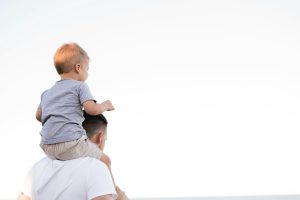With the holidays coming to a close, it can be a time of stress, confusion, and emotional upheaval for many kids. As the new school term begins, it’s important to recognize the behavioural and emotional changes in children of separated or divorced parents that may emerge as they navigate the return to school after the holiday season.
Increased Anxiety or Nervousness
After spending time with one parent (or both), children often face the anxiety of returning to school. They may worry about how to explain their family situation to peers, or feel unsettled about returning to a routine after the emotional highs and lows of the holidays. This can manifest as general anxiety, irritability, or avoidance of school-related tasks.
Mood Swings and Emotional Volatility
The time around the holidays can be emotionally charged for children in separated families. Many children experience conflicting feelings—such as sadness over not being with one parent, or guilt for having to divide their time between two households. When school resumes, these unresolved feelings can resurface, leading to mood swings, emotional outbursts, or increased frustration. Teachers and caregivers may notice heightened sensitivity or difficulty concentrating in class.
A Desire for Routine and Stability
Despite the emotional turbulence, children often crave stability and predictability in the aftermath of the holidays. Returning to school may be seen as a welcome return to normalcy, especially if it provides a structured environment where they know what to expect. For some children, the school routine offers a sense of security they may not experience at home. This desire for routine can sometimes translate into clinginess or dependence on school staff or friends for emotional comfort.
Behavioural Regression
It’s not uncommon for children of separated parents to show signs of behavioral regression following the holidays. They may act younger than their age, seeking more attention or exhibiting tantrum-like behavior. This is often a coping mechanism as they process the emotional upheaval of the season. For younger children, this might manifest as bed-wetting or difficulties with separation at school.
Loneliness or Isolation
In some cases, children may feel a sense of loneliness as they navigate the differences between their two households. The holidays might have been filled with family gatherings or special activities, and the return to school marks the end of this “special” time. Children may feel isolated, particularly if they perceive that their peers have had more stable, traditional holiday experiences.
Positive Coping and Resilience
On a positive note, some children show resilience and growth in the face of their family dynamics. They may develop new coping mechanisms, such as seeking support from teachers, counsellors, or friends. They might also become more adaptable to the split family structure, learning how to manage multiple perspectives and environments. For these children, the return to school can be an opportunity for positive emotional expression and personal growth
What Can Parents and Teachers Do?
Understanding these emotional and behavioural shifts is key to supporting children during this time. Parents can help by maintaining open communication, reassuring their children that their feelings are valid, and providing a stable environment at home. Teachers and school staff can offer a nurturing, understanding space for children to express their concerns, and can be mindful of changes in behaviour, offering support as needed.
While the holidays may bring moments of joy and connection for children of separated parents, they can also present significant emotional challenges. As the school year resumes, it’s crucial to recognize the signs of stress and offer the necessary support to help children process and adapt to the changes in their lives. With patience, understanding, and a consistent routine, children can gradually navigate these emotional hurdles and emerge stronger on the other side.







